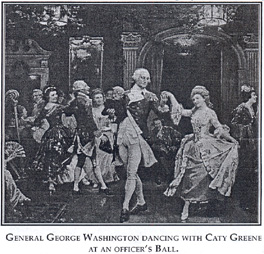 |
| Dick Winter's Memorial at Veteran's Plaza in Ephrata. Pennsylvania |
The Lecture
As part of their ongoing Veteran's Lecture Series, the Winters Leadership Memorial Committee invited me to speak on the American Revolution, the Yankee Doodle Spies, and related topics. The committee sponsors one such talk each month, typically the last Tuesday. The talk will encompass an overview of the eight-year struggle for independence plus a series of cameos on various aspects of the war such as intelligence, maritime, geography, etc. It will take place in the library at Ephrata, Pennsylvania. The Lecture Series itself began back in 2014 as a way to continue the effort we started with the construction of Ephrata’s Veterans Plaza & installation of the Winters Leadership Memorial. The driving purpose behind building the Veterans Plaza was to honor all veterans from all wars. One of the plaques in the plaza says it best, “They are not dead who live in the hearts they leave behind.”
The Man
The Winters Leadership Memorial is named after Major Dick Winters, legendary WWII commander of Easy Company of the 101st Airborne (Screaming Eagles) commemorated in the book and television mini-series: Band of Brothers. Winters grew up in and around Ephrata, in central Pennsylvania, where he eventually returned.
 |
| Winters was immortalized in the book and HBO series, "Band of Brothers" |
The Memorials
In June of 2012, a statue was installed at Utah Beach in Normandy. It was created in Richard D. Winters' likeness, designed to honor all leaders, especially those of the Junior Officer’s. Winters felt that the leadership and decision making of these young and inexperienced men was critical to the success of the D-Day invasion and other critical WWII battles. The artist who created the Winters Statue also offered the community of Ephrata the opportunity to erect a reproduction of the Normandy statue. A committee was formed, and the group set out to raise the funds required to acquire the statue, build the Veterans’ Plaza it would rest in, and maintain the site. In May 2015 the statue was dedicated at the plaza.
 |
| Actor Damian Lewis, who portrayed Dick Winters in the HBO series, speaks with 101st vet during the commemoration of the Winters Memorial in Normandy, France |
America's Veterans Issues & the Revolutionary War
So what does all of this have to do with the Rev War? Well, everything as it turns out. Issues regarding veterans commenced even as the American War for Independence was in its waning years. Soldiers released from services often failed to receive compensation promised by the states and Congress, little as that was. There were several "affairs" sometimes even mutinies over lack of compensation, food and clothing.
Newburgh Conspiracy
One of the most famous was the Newburgh Conspiracy, a rebellion of Continental Army officers in March 1783 that was nipped in the bud by George Washington himself. Washington personally confronted the conspirators, who planned to march on Congress and overthrow the fledgling confederation government. In 1780, Congress had passed a resolution providing half-pay for retired soldiers. But as late as 1783 the states (who had the power of the purse) had yet to comply with Congress’s request for money. The British Army was still quite ensconced in North America - the last troops would not leave until very late in the year. So the action of these conspirators could have resulted in stamping out the new nation before it could be established.
 |
| Continental Army at New Windsor Cantonment |
How did it happen? As the conspirators gathered at an assembly hall/chapel (the Temple Building) at Newburgh's New Windsor Cantonment, to the surprise of all, Washington suddenly appeared before the assembly. The group had an inflammatory ultimatum penned by Major Armstrong, a former aide to cashiered General Horatio Gates (no friend of Washington). Washington denounced Armstrong and the ultimatum in very strong (for the 18th Century) terms.
 |
| The Temple Building - chapel where the officers gathered and Washington confronted the conspiracy |
The commander in chief remarked of the ultimatum, "...something so shocking in it, that humanity revolts at the idea." Taking the pulse of the audience he went on, "My God! What can this writer have in view, by recommending such measures! Can he be a friend to the army? Can he be a friend to this country? Rather is he not an insidious foe?" He also asked that they, "Give one more distinguished proof of unexampled patriotism and patient virtue." He asked for their, "full confidence in the purity of the intentions of Congress."
 |
| Washington's Headquarters at Newburgh |
In closing, Washington attempted to read a letter he recently received from Joseph Jones, a Congressman from Virginia. The letter was to assure the commander in chief of (some in) Congress's assurance that the needs of the soldiers would receive a full measure of support. But Washington’s vision had recently begun to fail. He struggled with the opening paragraph. Frustrated Washington retrieved a pair of glasses from his pocket. Then, the usually formal and stiff Washington made a rare casual remark. "Gentleman, you must pardon me, for I have not only grown gray but almost blind in service to my country."
This spontaneous act of demonstrating his humanity, from a man almost all held as next to God, had the immediate effect of taking the air out of the sails of mutiny and rebellion. Many officers began to weep. Possibly the greatest threat to the American Revolution and the new nation had evaporated due to the heartfelt and humble words of Washington. Sadly, veterans have had to fight for their rights from that day forward. Sometimes things did not end as peacefully and quickly as that March day in the Hudson Valley.
 |
| Washington did as much in saving The Cause with his talk as in all the battles he fought |



